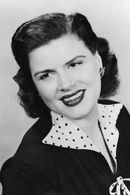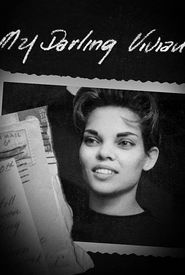Virginia Patterson Hensley, later known as Patsy Cline, was born on September 8, 1932, in Winchester, Virginia. At the tender age of four, she won a prize in an amateur tap dancing contest, which marked the beginning of her brush with show business.
As she entered grade school, her family became aware of her exceptional musical talent. On her eighth birthday, her mother presented her with a piano, on which she learned more music patterns. Sundays were reserved for singing with the local church choir, and by the time she was 14, she was regularly performing on local radio station WINC.
Tragedy struck when Patsy's parents divorced, reportedly due to her father's heavy drinking. Without her father's financial support, Patsy helped her mother earn money by singing in local clubs and working at the local drug store. This led to her dropping out of high school a year later.
In 1948, Patsy's big break came when Wally Fowler brought his music show to her hometown. Impressed by her singing, Fowler gave her the opportunity to audition for the Grand Ole Opry in Nashville. Although she was initially rejected, Patsy continued to sing in local clubs and eventually met and married Gerald Cline in 1952.
That same year, she was featured in Bill Peer's Melody Playboys of Brunswick, Maryland, and secured her first recording contract with Four Star Records in 1954. In late 1955, Patsy became a regular on the radio show "Town and Country Jamboree," a country-western program that broadcast in Washington, D.C.
Patsy's big break came in 1957 when she appeared as a contestant on the television variety show "Talent Scouts" hosted by Arthur Godfrey. For her first television appearance, she selected a torch song she sang a year earlier, "Walkin' After Midnight." She won first place and became a regular on the show for the next two weeks. "Walkin' After Midnight" was released as a single and put Patsy on the top ten charts of country and pop music.
However, her determined drive and ambition put a strain on her marriage, and she and Gerald divorced soon after her television debut. Patsy married a second time, to Charlie Dick, and they had two children. However, when she returned to singing, the long hours that kept her away put another strain on their marriage.
In 1960, Patsy was finally invited to join the Grand Ole Opry, and the following year she scored with her second single, "I Fall to Pieces." Producer Owen Bradley took advantage of Patsy's rich voice and backed her with lush string arrangements rather than the twangy sound of steel guitar, which was typical for country-western singers at the time.
Anxious to be true to her roots, Patsy often expressed a desire to yodel and growl on her records, but she understood that this smoother sound was giving her career a major boost and used it during the next two years of album recordings. In March 1963, Patsy traveled from Nashville to Kansas City, where she appeared at a benefit concert for the family of disc jockey Jack McCall, who had been killed in a traffic accident earlier that year.
Immediately after her performance, she boarded a small plane back to Nashville along with country-western performers Cowboy Copas, Harold Hawkshaw Hawkins, and pilot Randy Hughes. Approximately 85 miles west of Nashville, the plane ran into turbulence and crashed. There were no survivors.
Shortly before her death, Patsy recorded the single "Sweet Dreams," which became #5 on the country charts after her untimely death at age 30. Her best-known song, "Crazy," was written by future country-western legend Willie Nelson. Ten years after her death, Patsy Cline was inducted into the Country Music Hall of Fame, the first female soloist chosen for the honor.
























